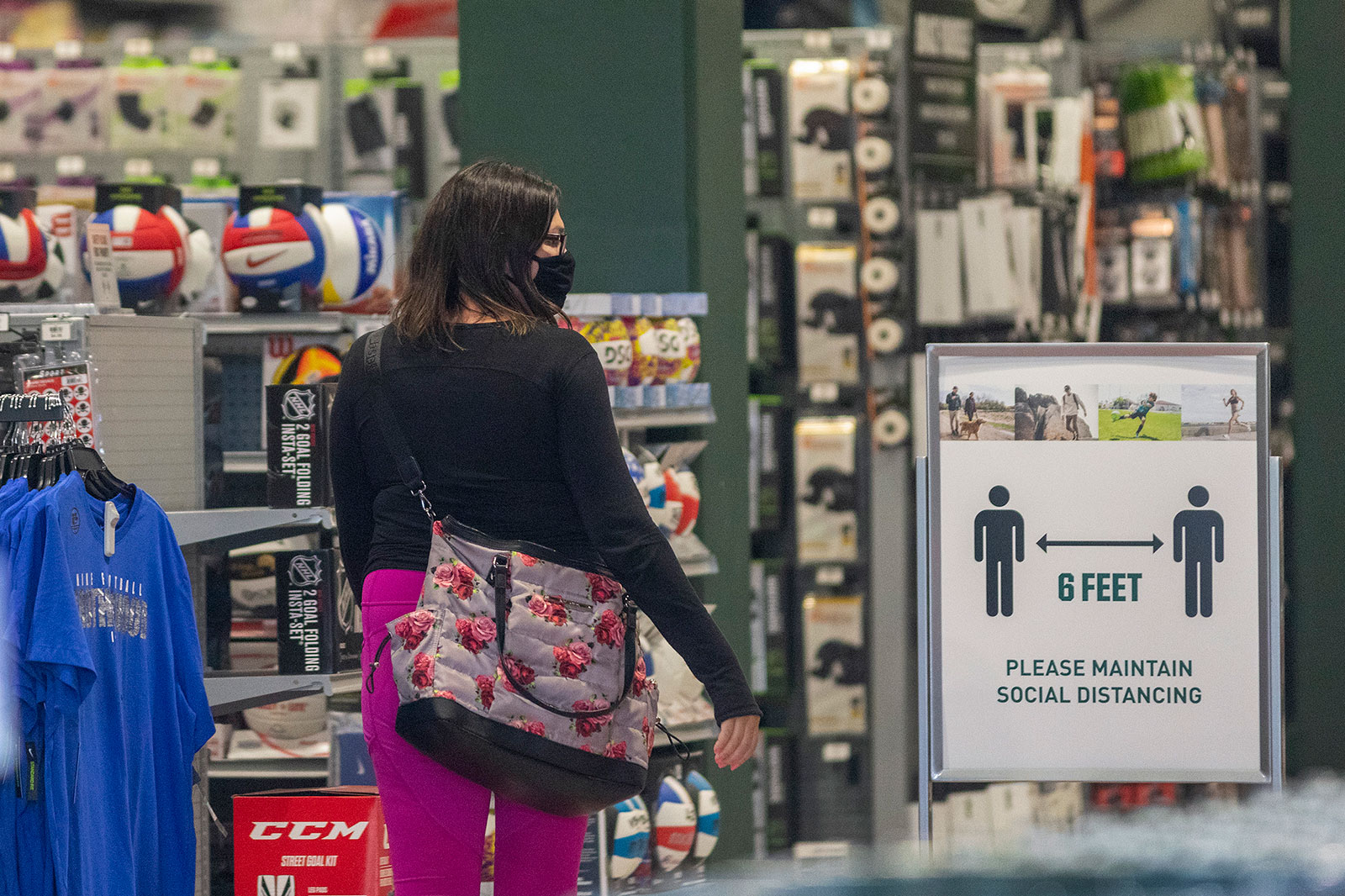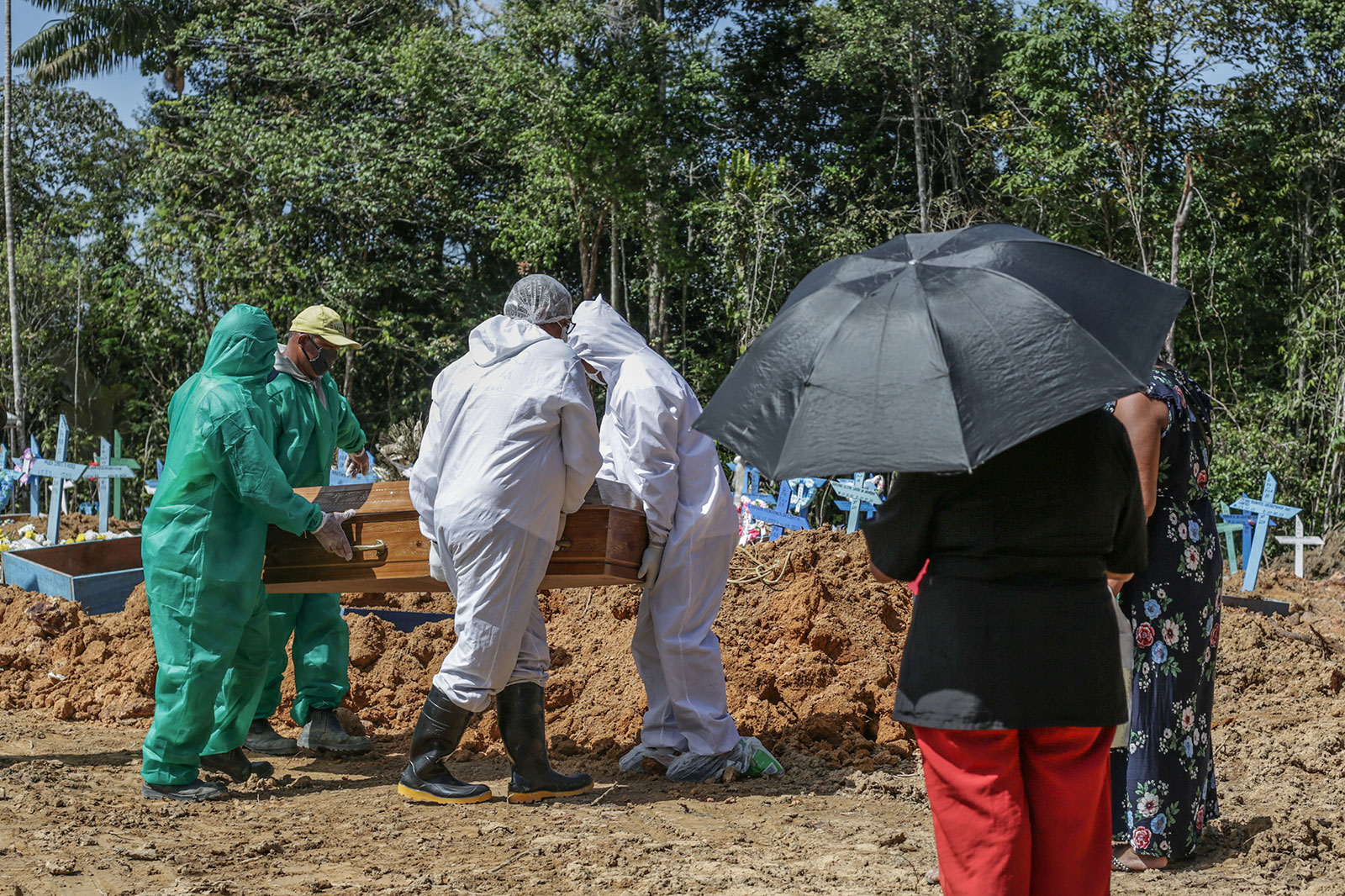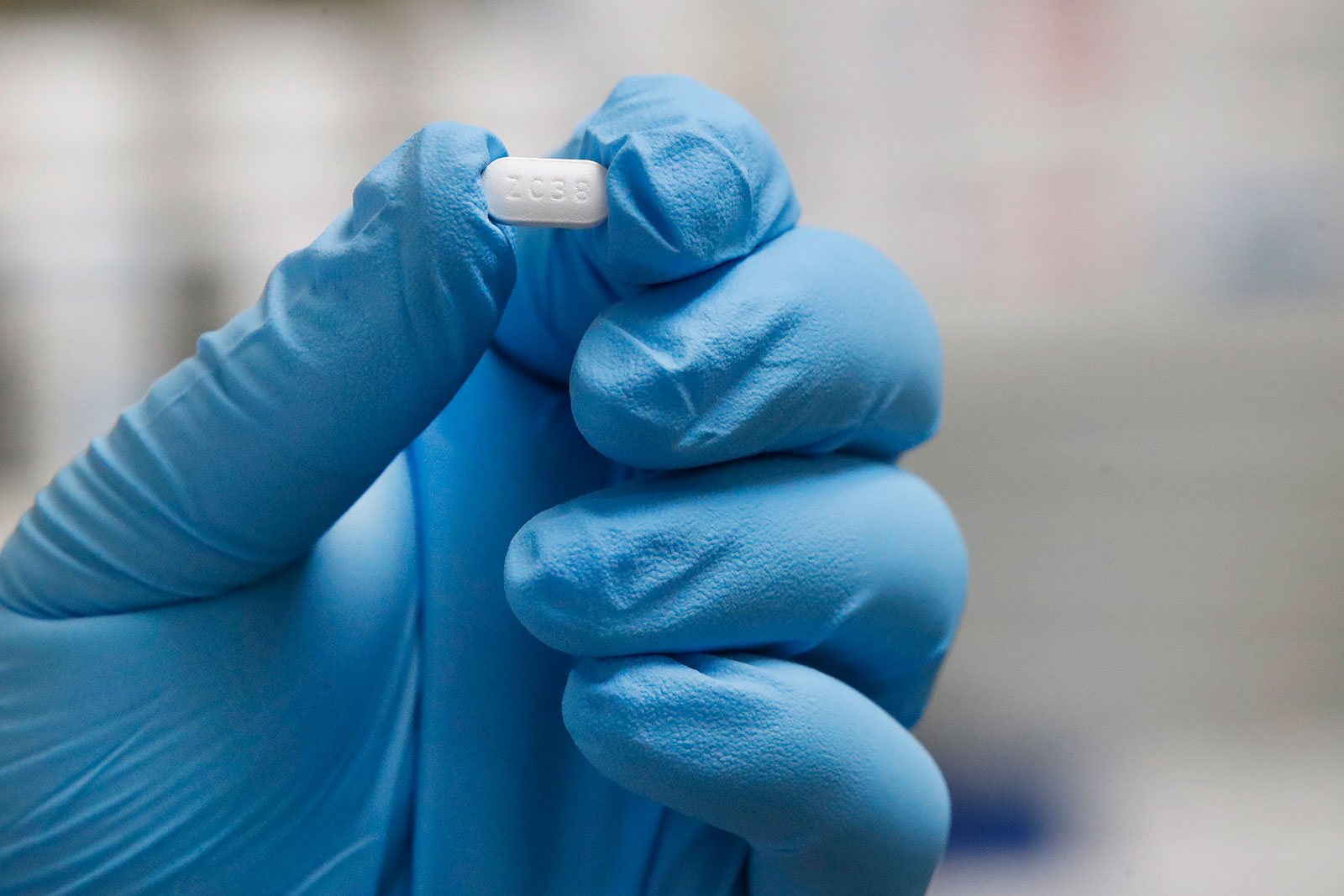Our live coverage of the global coronavirus pandemic has moved here.
May 27 coronavirus news
By Jessie Yeung, Steve George, Zamira Rahim and Fernando Alfonso III, CNN
Six feet of distance may not be enough to prevent coronavirus transmission, experts say
From CNN’s Arman Azad

Public health officials have called on people to stay six feet apart to slow the spread of coronavirus through so-called respiratory droplets. But three experts are warning that six feet may not be enough – and they say the world needs to take airborne transmission of the virus seriously.
In a commentary published in the journal Science, the experts called for “regular, widespread testing” to find asymptomatic cases, and they pointed to places where mask wearing is universal and the virus has been controlled, like Singapore, Hong Kong and Taiwan. World Health Organization guidance might not be enough in all situations, they said.
“Evidence suggests that [the novel coronavirus] is silently spreading in aerosols exhaled by highly contagious infected individuals with no symptoms,” wrote Chia Wang of National Sun Yat-sen University in Taiwan and Kimberly Prather and Dr. Robert Schooley of the University of California, San Diego.
“Increasing evidence for [the coronavirus] suggests the six foot WHO recommendation is likely not enough under many indoor conditions where aerosols can remain airborne for hours, accumulate over time, and follow air flows over distances further than six feet,” they wrote.
The three experts, who are specialists in chemistry and infectious diseases, said aerosols from breathing and speaking “can accumulate, remain infectious in indoor air for hours, and be easily inhaled deep into the lungs.” That makes wearing masks all the more essential, they said, even when people are keeping their distance.
More on this: The US Centers for Disease Control and Prevention has focused on so-called respiratory droplets produced when a person coughs or sneezes. The droplets don’t linger in the air for long, but the CDC says they “can land in the mouths or noses of people who are nearby or possibly be inhaled into the lungs.”
Spread is more likely when people are in close contact with one another, or “within about 6 feet,” the CDC says. That’s because respiratory droplets are relatively large and fall to the ground – unlike aerosols, which are smaller and more likely to stay in the air longer.
Despite the focus on droplets from US health officials and others, the experts said “a large proportion of the spread of coronavirus disease 2019 (COVID-19) appears to be occurring through airborne transmission of aerosols produced by asymptomatic individuals during breathing and speaking.”
While more research is needed, they called for robust testing schemes and said people need to mask up. “For society to resume, measures designed to reduce aerosol transmission must be implemented, including universal masking and regular, widespread testing to identify and isolate infected asymptomatic individuals,” they said.
More than 100,000 Americans have died from coronavirus in the US
From CNN's Holly Yan, Steve Almasy and Jay Croft
At least 100,276 people have died from Covid-19 in the US, according to Johns Hopkins University's tally of cases.
That's almost twice the number of Americans lost during the entire Vietnam War.
No one knew how bad the coronavirus pandemic would get when the first known virus-related death happened on February 6.
But since then, an average of nearly 900 Americans have died every day from Covid-19.
The victims have represented some of the best of humanity:
An ER doctor who risked his life trying to save others.
A grandmother and refugee who worked tirelessly to provide a better life for her children.
A 36-year-old principal who helped troubled students grow produce for the needy.
A Holocaust survivor who saved dozens of families from genocide.
Remembering the victims: 105 families shared their favorite memories with CNN. Read their stories here.
Watch:
Brazil records more than 1,000 deaths and 20,000 cases in a single day
From CNN's Shasta Darlington and Helena de Moura

Brazil added 1,086 new coronavirus-related deaths over the last 24 hours, raising the national death toll to 25,598, the country's health ministry reported Wednesday.
The ministry said 20,599 new cases were also confirmed, bringing the total number of cases to 411,821.
French Parliament adopts contact-tracing app
From CNN's Benjamin Berteau and Ya Chun Wang
Both chambers of the French Parliament voted overwhelmingly in favor of the StopCovid smartphone application on Wednesday, despite the contact tracing app being decried by opposition parties for its infringements on individual freedoms.
The vote was purely symbolic and was meant to let French President Emmanuel Macron's government know that there was political backing for the StopCovid app. After hours of debate, StopCovid was adopted at the National Assembly with 338 votes in favor and 215 votes against. Around midnight, the French Senate voted in favor of the government app by 189 votes in favor to 129 against.
“StopCovid is a tool at the service of citizens and not a threat to their freedoms,” Justice Minister Nicole Belloubet told the Lower House.
The app had already been given the green light by the National Commission for Digital Freedom on Tuesday. A spokesperson for the National Assembly told CNN on Wednesday that the government "did not need a legal basis in order to deploy the app, because it works on a purely voluntary basis and doesn’t infringe on personal freedom."
French digital rights association La Quadrature du Net said that between 60% and 80% of the population would need to use the app for it to be useful in the fight against coronavirus.
UK pauses hydroxychloroquine trial involving health care workers
From CNN's Lindsay Isaac and Lauren Kent

A global clinical trial using health care workers to test the effectiveness of anti-malarial drugs chloroquine and hydroxychloroquine against coronavirus has been put on hold by the British government.
“All hydroxychloroquine trials in COVID-19 remain under close review and the [Medicines & Healthcare products Regulatory Agency] MHRA continue to work with investigators to advise on incorporation of any further risk mitigations into their protocol that will support continuation of studies,” the agency said in a statement Wednesday.
The study, led by the University of Oxford and Mahidol Oxford Tropical Medicine Research Unit (MORU) in Bangkok was set to enlist up to 40,000 frontline workers and staff from Europe, Africa, Asia and South America who have close contact with Covid-19 patients.
In a statement to CNN, MORU said: "We received notice from the UK's MHRA to pause for now new (enrollment) into our COPCOV study. We responded promptly to the MHRA, addressing their concerns in detail and await their decision. For now, COPCOV study (enrollment) is paused around the globe. The safety of our participants is our first priority, as is preventing illness in front-line healthcare workers."
The trial was paused on the same day the French government banned doctors from prescribing hydroxychloroquine to Covid-19 patients. The French Health Ministry on Wednesday revoked its authorization for the drug to be given to those with coronavirus, saying that the scientific data available at present does not provide sufficient “evidence of a benefit” to support its use.
On Monday, the World Health Organization said it had temporarily halted the study of hydroxychloroquine as a potential Covid-19 treatment in its Solidarity Trial due to safety concerns. The WHO’s decision was made after an observational study, published in the medical journal The Lancet described how seriously ill Covid-19 patients who were treated with hydroxychloroquine and chloroquine were more likely to die or develop irregular heart rhythms.
CNN has reached out to the MHRA, Oxford and MORU for further comment.
Spain had 43,000 more deaths than usual during two peak Covid-19 months
From CNN’s Al Goodman, Ingrid Formanek and Mia Alberti
Mortality rates in Spain were 55% higher than usual between March 10 and May 10 of this year, Spain’s top coronavirus health ministry official said Wednesday.
“This excess of 55% represents more than 43,000 deaths than what is expected,” Fernando Simón, Spain’s director of the center for health emergencies, said. “That mortality was centered in people 75 or older,” accounting for 35,000 of the total excess figure.
However, only 27,118 of those additional deaths are linked to Covid-19. A “significant part” of the more than 43,000 deaths between March 10 and May 10 “cannot directly connect to Covid-19 yet,” cautioned Simón.
"If we count the deaths with coronavirus and compare it with the excess, there's still a significant number of deaths left that could be explained for several reasons," he added.
Among those reasons, could be an inability or unwillingness to go to a hospital or get medical assistance during the peak of the coronavirus outbreak, Simón said.
“We may have also witnessed some complications in some health centers that didn't favor survival during a longer period for some of our elderly,” he added.
A number of senior care homes in Spain reported unusually high mortality numbers during the height of the pandemic, but most of the deceased were not tested for Covid-19.
The numbers are emerging now, Simón said, because the country was under strict lockdown during the height of the epidemic, and notifications of deaths may have been delayed due to registry workers not being able to go to their offices, leaving many deaths tallied without a detailed analysis.
El Salvador’s president says he taking hydroxychloroquine as a Covid-19 treatment
From CNN's Tatiana Arias
El Salvador's president Nayib Bukele says he's taking hydroxychloroquine as a treatment to prevent Covid-19.
Remember: Hydroxchloroquine is an anti-malarial drug that medical experts have said is an unproven and possibly harmful therapy to ward off coronavirus. President Trump has also claimed he is using the drug.
“I use it as a prophylaxis. President Trump uses it as a prophylaxis. Most of the world’s leaders use it as a prophylaxis,” Bukele said on Tuesday.
Bukele touted his use of the drug during a news conference with US Ambassador to El Salvador Ronald Johnson about the donation the US had made of 250 ventilators to the Central American country.
"Sometimes what's recommended to the people is something different than what's recommended to the leaders, because I have been recommended to use hydroxychloroquine as a prophylaxis and the probability of this harming you is very low," Bukele said as he displayed a bottle of what is assumed to be hydroxychloroquine.
Bukele did not say how much he was taking or if the drug was prescribed by a doctor.
The leader added that at the recommendation of the World Health Organization, the drug was no longer part of the country's coronavirus treatment protocol, but that it would remain available for "those who wish to use it as prophylaxis" or by a doctor's prescription.
The World Health Organization announced Monday that it has temporarily halted studying hydroxychloroquine as a potential Covid-19 treatment in its Solidarity Trial due to safety concerns.
Coronavirus cases top 80,000 in Chile
From Florencia Trucco and Tatiana Arias
Chile's ministry of health reported on Wednesday 4,328 new cases of coronavirus, bringing the country's total number of cases to 82,289.
Health authorities also reported 35 new deaths, bringing the country's death toll to 841 as of Wednesday afternoon.
Chile has one of the highest infection rates in Latin America following Brazil and Peru.


